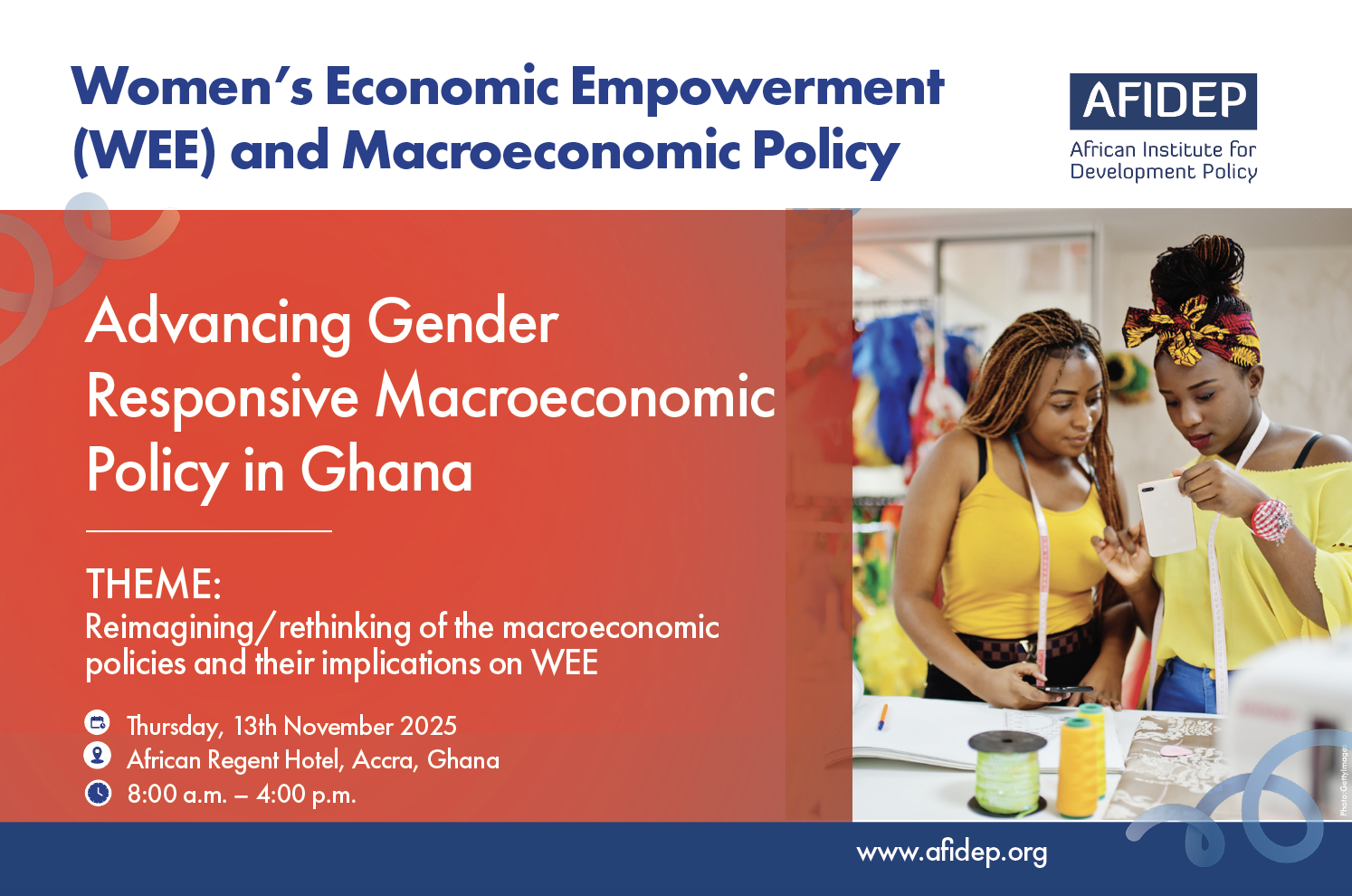News

The African Institute for Development Policy (AFIDEP) will be hosting a policy dialogue on Women’s Economic Empowerment (WEE) and Macroeconomic Policy: Advancing Gender-Responsive Macroeconomic Policy.
Under the theme ‘Reimagining / rethinking of macroeconomic policies and their implications on WEE,’ the dialogue aims to provide a platform for reflection, knowledge sharing, and joint problem-solving among stakeholders in advancing gender-responsive macroeconomic policy in Ghana.
The policy dialogue also seeks to build consensus on how macroeconomic policies can better support women’s economic empowerment with a specific focus on informal work, social protection, and tax justice.
Date: Thursday, November 13, 2025
Venue: African Regent Hotel, Accra, Ghana
Time: 8:00 a.m. – 4:00 p.m.
Facilitators:
Maame Peterson, Ph.D. – Research and Policy Analyst (AFIDEP)
Jackson Otieno, Ph.D. – Senior Research and Policy Analyst (AFIDEP)
Nkechi Owoo, Ph.D – Women Economic Empowerment Consultant (AFIDEP)
Specific objectives:
- Reflect on key priorities identified during the co-creation workshop, including fiscal and monetary policies, social protection, labour markets, and the informal economy.
- Examine policy reform options that respond to these priorities, with particular attention to embedding WEE in Ghana’s macroeconomic policy processes.
- Exchange perspectives, align ongoing and new initiatives, and build stronger synergies for advancing women’s economic empowerment in macroeconomic policy.
This policy dialogue demonstrates AFIDEP’s commitment to advancing evidence-informed policies that drive gender equality and inclusive economic growth across Africa. By bringing together key stakeholders to reflect, share insights, and explore reform options, the discussion reinforces the importance of integrating women’s economic empowerment into macroeconomic frameworks. It provides a platform to reimagine fiscal and monetary policies, social protection, and informal work systems through a gender-responsive lens.
The outcomes will help shape practical pathways for embedding women’s priorities in national economic strategies and ensuring that policy reforms translate into tangible benefits for women and communities.
Through initiatives like this, AFIDEP continues to bridge research and policy, fostering collaboration and accountability in the pursuit of equitable and sustainable development.

